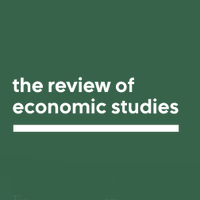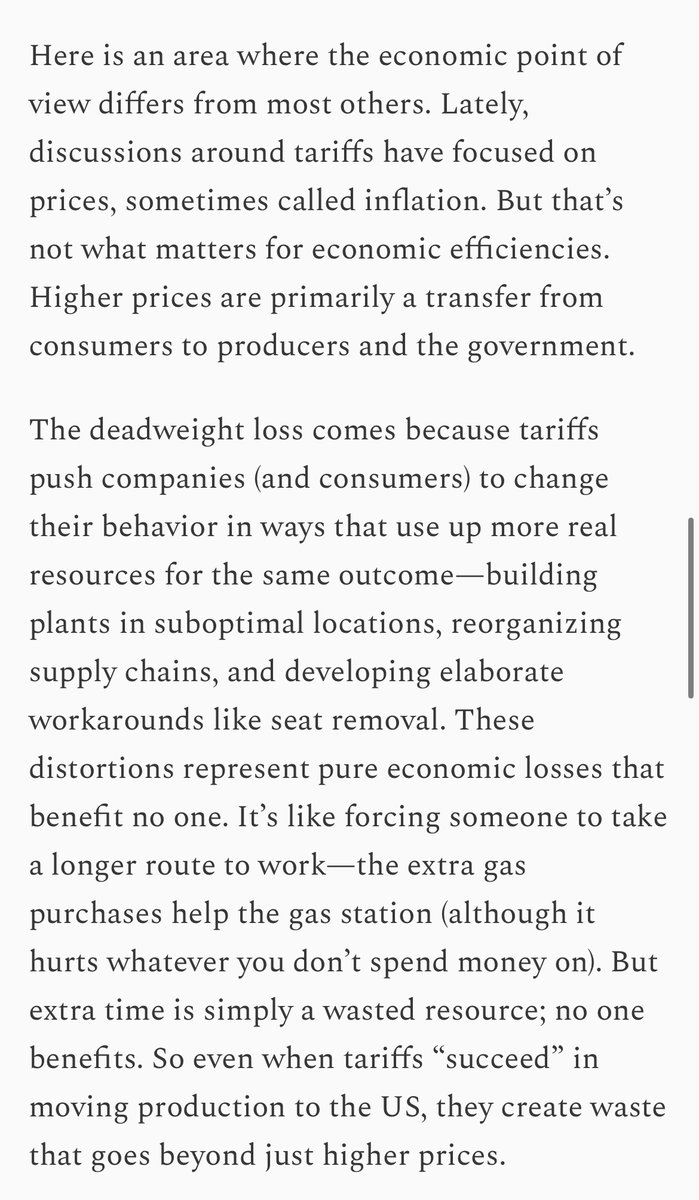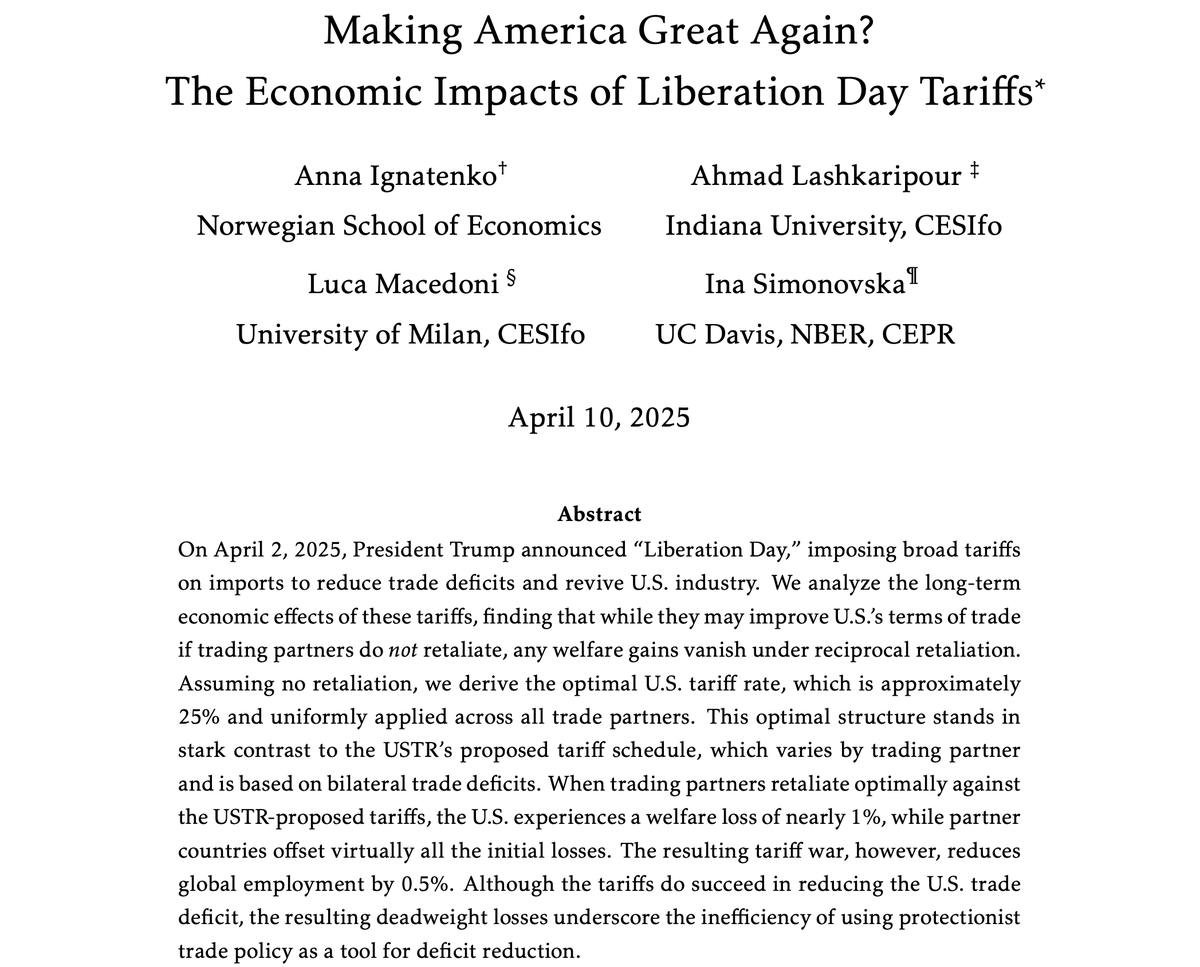
Ariel Weinberger
@arielwein
Economist, International Business Department, George Washington University. Affiliated with @iiepgw. Trade and Macro.
ID: 70624372
https://www.aweinberger.weebly.com 01-09-2009 07:32:04
1,1K Tweet
660 Followers
610 Following

The International Economic Review has just published a new exciting paper by Luca Macedoni and Ariel Weinberger on INTERNATIONAL SPILLOVERS OF QUALITY REGULATIONS. It is available through Wiley Economics here: onlinelibrary.wiley.com/doi/10.1111/ie…

So happy to share that our paper is forthcoming in The Economic Journal Lobbying efforts on the ratification of FTAs are dominated by MNCs, which (virtually always) support them and have larger potential gains from their ratification. You can read more here 👇🏼

Trade-induced competition on final goods drives firms to upgrade the quality of their product mix and export. In September issue, by Pamela Medina Pamela Medina Quispe zurl.co/d3yo

Shared some of my predictions for the Chinese economy under Trump 2.0 with the WSJ: wsj.com/economy/trade/… via The Wall Street Journal



Happy (and relieved) to announce that my paper with (((Noel Maurer))) on labor coercion in colonial Peru has finally finally finally been published. Read it , cite it, send it to your family, friends, and enemies! #econhistory #persistence #notpersistence link.springer.com/article/10.100…






Recently accepted to #REStud, ``Global Value Chains and Trade Policy," from Emily Blanchard, Chad P. Bown and Johnson: restud.com/global-value-c…









